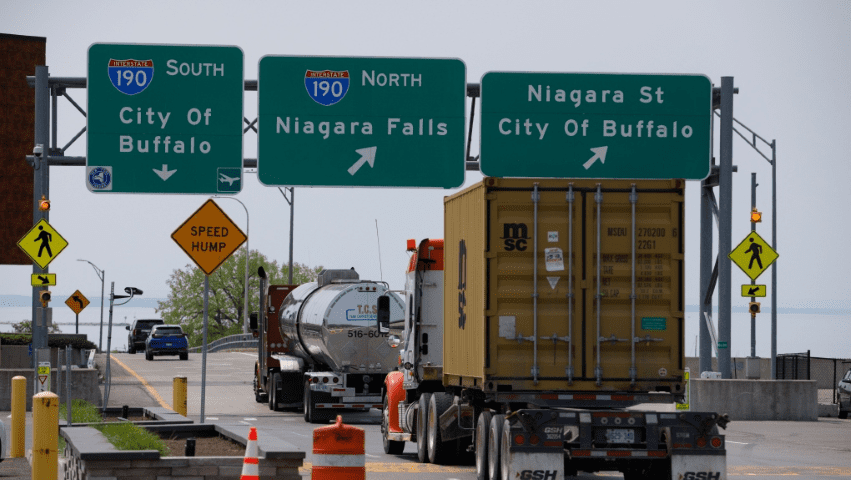
Drivers pass through the Peace Bridge Port of Entry in Buffalo, New York, on Tuesday, May 23, 2023. The image was captured by Cole Burston for THE CANADIAN PRESS.
As the holiday season approaches, the Canada Border Services Agency (CBSA) is issuing a friendly reminder to Canadians to be well-prepared for their travels. In a press release circulated on Wednesday, the agency shared some practical tips for those planning to cross the border during what is expected to be one of the busiest travel seasons of the year.
The key advice emphasized by the CBSA is to plan. Travelers are urged to check real-time border wait times on the CBSA website before heading to their nearest crossing. To optimize their experience, land travelers are encouraged to choose non-peak hours, such as early morning, for a smoother border crossing. The agency particularly cautions about Mondays during holiday long weekends, as these tend to witness the highest traffic and longer wait times.
The preparation of travel documents is highlighted as a crucial step. Travelers should ensure they have their passports, birth certificates, permanent resident cards, citizenship cards, and Secure Certificates of Indian Status in hand before reaching the border. For those traveling with children, additional documents may be necessary, such as a consent letter for parents who share custody or are not legal guardians.
To expedite the process, the CBSA suggests that air travelers can save time with an advance declaration, available 72 hours before the journey. This allows passengers access to express lanes at major city airports, including Toronto, Vancouver, Winnipeg, Halifax, and Calgary.
The CBSA also guides what can and cannot be brought across the border. Travelers are reminded to declare goods when entering Canada, and those returning should have receipts readily available. Additionally, if carrying gifts, it is recommended to leave them unwrapped or in gift bags to facilitate inspections.
For those planning to bring food, plant, or animal products into Canada, the CBSA advises consulting the Canadian Food Inspection Agency website for regulations. Notably, homemade products containing turkey cannot be brought into the country, and there may be restrictions on poultry from the U.S.
In terms of cannabis, the CBSA emphasizes that bringing it into or out of Canada is considered a serious criminal offense, even with a medical prescription.
Regarding duty-free allowances, travelers leaving for a day trip to the U.S. have no personal exemptions on purchases. Those staying beyond 24 hours can spend up to $200 on goods, excluding tobacco and alcohol. After 48 hours, Canadians can claim up to $800 in goods, including tobacco and alcohol, within specified limits. For longer durations, such as a week or more, exemptions vary, and some products may be eligible for shipping back home.
As the CBSA encourages safe and hassle-free travel, these practical tips serve as a valuable guide for Canadians gearing up for the holiday season. So, whether you're embarking on a cross-border journey or returning home, a little preparation can go a long way in ensuring a smooth and enjoyable travel experience.















